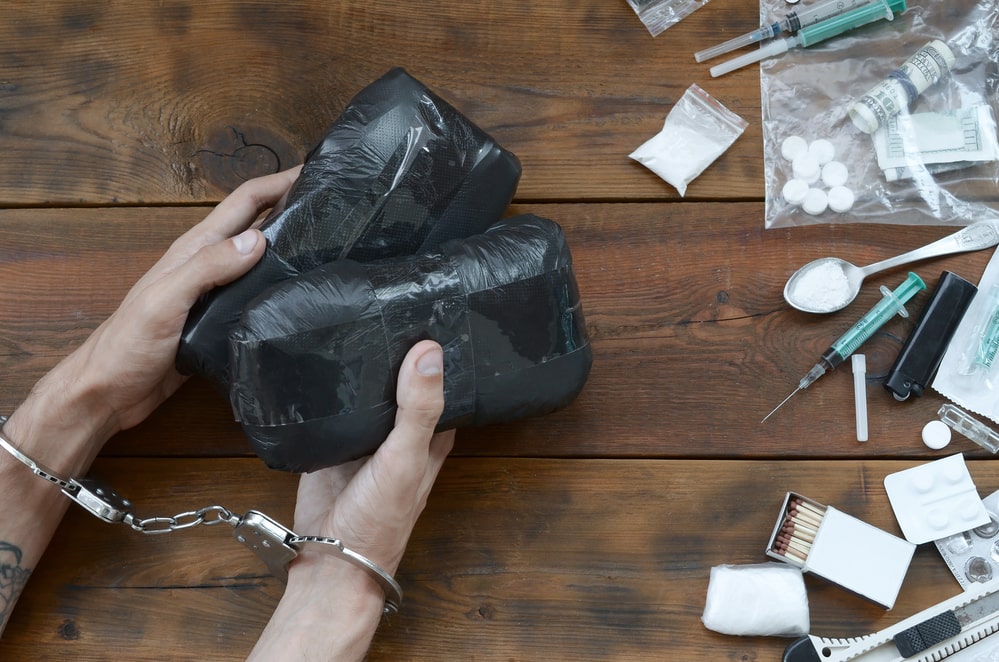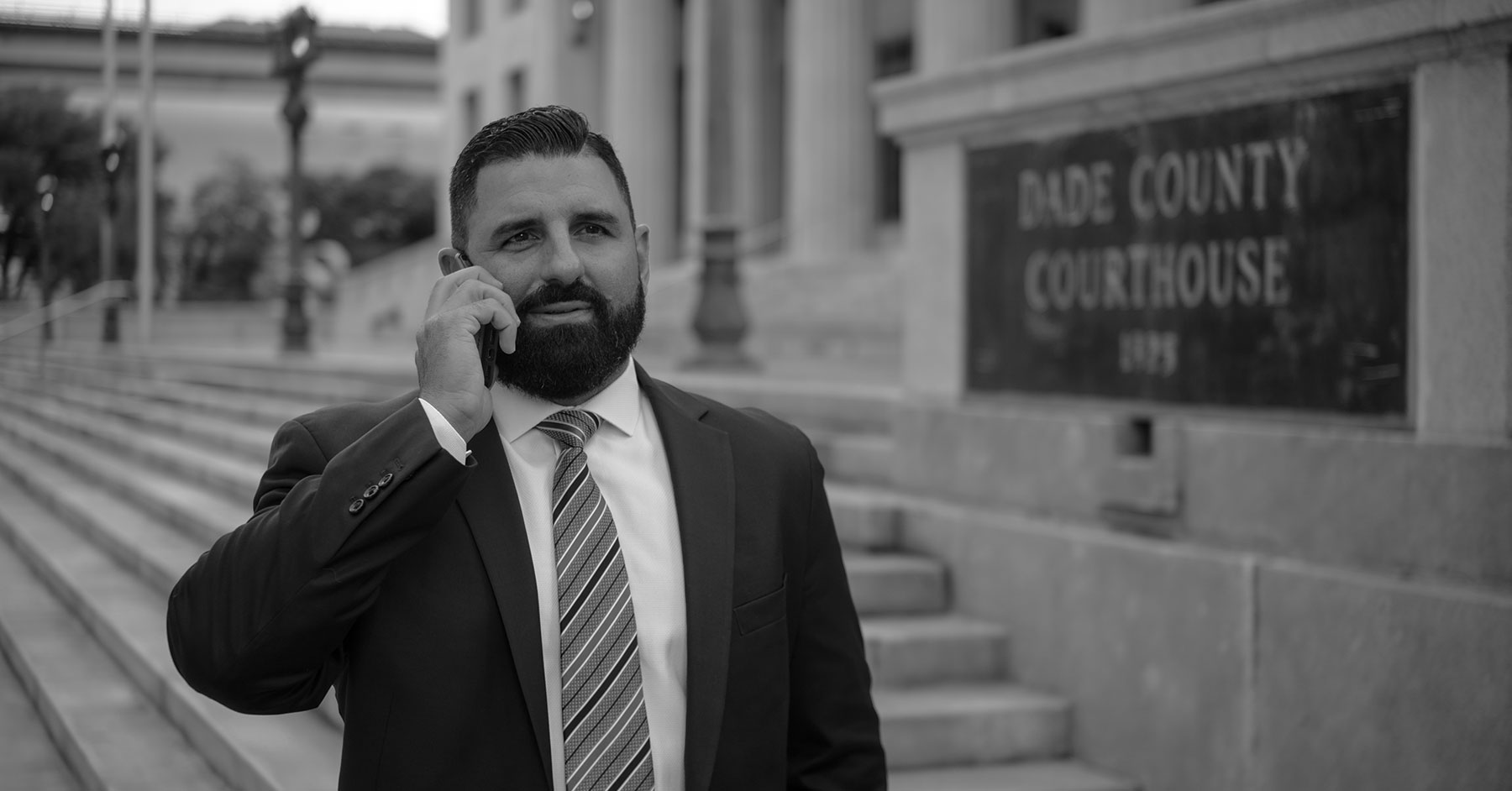What Does “Possession is 9/10 of the Law” Mean in Florida?

You’ve probably heard the expression “possession is 9/10 of the law” but what does that actually mean in legal cases involving drug crimes?
Is there an actual law that this refers to? If not, does the phrase have any place in drug possession crimes or any other type of criminal case—and can it be used by either the prosecution or the defense?
Let’s take a look at the origins of the phrase, what it means, and how it may or may not apply to cases involving drug crimes, the criminal possession of weapons or theft offenses in Florida.
Where does the saying “possession is nine-tenths of the law” come from?
The earliest written version of the phrase “possession is nine-tenths of the law” was in 1616 when Thomas Draxe wrote “possession is nine points of the Law” in the Bibliotheca Scholastica.
The phrase means that the physical possession of something gives you a stronger legal claim to it than someone who just claims ownership of it. In other words, custody presumes ownership or “finders keepers.”
Traditionally, this argument has been used in civil disputes over property. Under the laws in ancient Rome, for instance, when parties disputed property, the person currently holding the item could keep it until a court decided who the legal owner was. To this day, the phrase is sometimes used in connection with squatters’ rights and real estate disputes.
In criminal law, the phrase may be used casually to suggest that someone caught by law enforcement in possession of an item (such as a firearm or drugs) is 90 percent certain of being convicted of the crime they’re charged with. This is not necessarily true.
Criminals may also use the phrase to convince someone else to commit a crime, claiming that by destroying the evidence, there is a high likelihood of not being caught. Again, this is not necessarily true, and many people who believed it are currently behind bars.
Is “possession is nine-tenths of the law” an actual law?
Despite the widely held belief in the veracity of the phrase, nothing in the U.S. or Florida legal codes explicitly refers to the phrase “possession is nine-tenths of the law”. No criminal statute defines possession by the 9/10 rule.
So, the phrase is not a true legal doctrine, and it is not a solid footing on which to build a criminal defense or prosecution case, whether concerning drug possession or another type of alleged crime.
Criminal possession of drugs or weapons in Florida
Possession is a term often used in criminal law, especially in connection with theft, weapons, and drug crimes. For instance, individuals can be charged with the possession of a controlled substance, the illegal possession of a firearm, simple theft, and so on.
In drug crime cases, you’ll never hear “possession is nine-tenths of the law” used by a legal team. Possession will instead be classed as either actual possession or constructive possession:
- Actual possession: if an individual is accused of physically holding something or it was physically on their person, such as in a trouser pocket.
- Constructive possession: if an individual had immediate access to something, such as in the glove box of a car.
Depending on the circumstances of the case, many viable defenses could be put forward to defend charges of actual or constructive possession of drugs. If you’ve been accused of drug/weapon possession or a theft offense in Florida, it’s essential to talk to an experienced criminal defense attorney as soon as possible.
Can you be convicted of theft if a stolen item is not in your possession?
Yes, if you are stopped by police and are suspected of previously having a stolen item in your possession—but it is no longer on or near your person—you can still be charged and convicted.
For instance, if an individual steals a wallet, spends the money inside it, and then disposes of the item in a trash can—and the police subsequently find the wallet and trace the spending of the money back to that individual—the wallet can be used as evidence in a theft charge.
So, under Florida law, it can be safely stated that possession is not 9/10 of the law.
Can illicit substances be in your presence but not in your possession?
Again, illicit substances don’t need to be physically in your possession at the time you are stopped to be charged with a drug crime in Florida.
If you try to conceal a bag of illicit substances (or weapon) in a nearby area as the police approach—and you are subsequently linked to those items by evidence—the fact that the items are not actually in your possession at the time won’t save you from facing a criminal charge for drug possession.
At the same time, just because you are caught with drugs in your possession does not automatically lead to a criminal conviction. Everybody is entitled to a defense and there may be a valid reason why the items were on your person at the time you are stopped by the police. For instance, they may have been planted or you were acting under duress. Violation of constitutional rights may also form the basis of a legal defense.
If you’re arrested and charged, don’t say anything to law enforcement to defend yourself or explain your actions until you have had a chance to meet with a professional criminal defense attorney and discuss how to proceed.
If you’re in the Miami Lakes area, contact us online or by phone at (305) 403-7323 for a free initial consultation with a skilled criminal defense lawyer.
Violent crime convictions cannot be sealed or expunged
A conviction for a violent crime in Florida stays with you for life, even after the sentence has been served. The conviction cannot be sealed or expunged.
However, a seasoned criminal lawyer will work to reduce the severity of the consequences you face. For instance, charges may be downgraded to avoid mandatory minimum sentences or even dismissed if your constitutional rights were breached during the investigation or arrest.
If you’re in the Miami Lakes area, contact us online or by phone at (305) 403-7323 for a free initial consultation with a skilled criminal defense lawyer.

